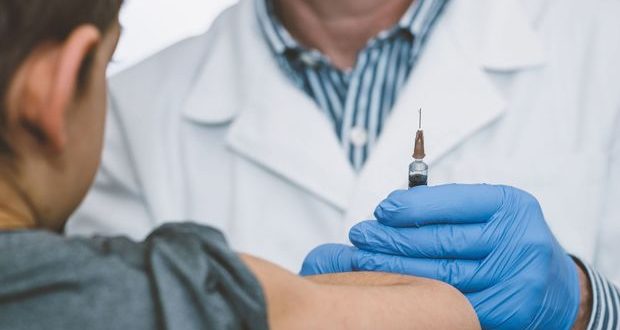Two New Westminster middle school boys are once again calling on the provincial government to make the vaccine for the human papillomavirus – commonly known as HPV – available to all genders.
Nelson Roy, 13, and his twin brother Elliott have filed a human rights complaint and claim the province of British Colombia’s immunization program is discriminatory against young men.
That two years ago when Nelson Roy was in sixth grade, he couldn’t understand why only young girls were receiving the vaccine for HPV, the sexually transmitted infection spelled out as human papillomavirus that studies have shown can cause several types of cancer.
“It just didn’t seem right,” Roy said. “We did a little bit of research and found out that both people were recommended to get it, but they’re only giving it to girls for free, so I was a little upset about that.”
Many across British Colombia agree with the Roy Twins. The Canadian Cancer Society is one of 25 health organizations to show the teens support and it, too, wants equality for both genders.
“No one should have to rely on their partner for protection from a cancer-causing virus,” Julia Hayos, of the Canadian Cancer Society told The Sun. “What we know is that in B.C., since the vaccine was introduced, about a third of girls across the province who are eligible for the vaccine aren’t actually getting vaccinated.”
The program does technically offer free vaccines to boys and men, however, only to those labeled “at risk,” like gay men, those under government care, or those infected with HIV, among others.
Three HPV vaccines (Cervarix, Gardasil, and Gardasil 9) are available to protect females against the types of HPV that cause most cervical cancers. Two of these HPV vaccines (Gardasil and Gardasil 9) also protects against most genital warts. Gardasil has also been tested and shown to protect against cancers of the vagina, vulva, and anus.
HPV vaccination is recommended for 11- and 12-year-old girls, and for women 13 through 26 years old who did not get any or all of the three recommended doses when they were younger. These vaccines can also be given to girls beginning at age nine.
Agencies/Canadajournal
 Canada Journal – News of the World Articles and videos to bring you the biggest Canadian news stories from across the country every day
Canada Journal – News of the World Articles and videos to bring you the biggest Canadian news stories from across the country every day



